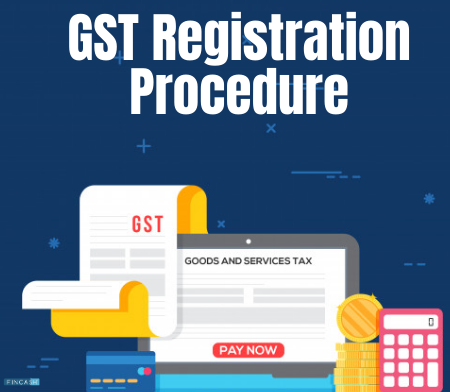Comprehensive Guide to the Best GST Registration Services in Singapore
Comprehensive Guide to the Best GST Registration Services in Singapore
Blog Article
Throughout: The Ultimate Roadmap to GST Enrollment for Companies Looking For Financial Security
Navigating the intricacies of Product and Services Tax (GST) enrollment is a crucial action for businesses aiming for monetary security. Breaking down the roadmap right into workable actions can simplify the registration journey for companies looking to improve their economic standing.
Understanding GST Essentials
Digging into the basic concepts of Goods and Provider Tax (GST) is essential for getting a detailed understanding of its ramifications on companies and the economy. Input Tax Credit Scores (ITC) is a significant function of GST, enabling businesses to claim credit for tax obligations paid on inputs, lowering the general tax problem. Recognizing the essentials of GST is essential for companies to comply with tax obligation regulations, manage their funds effectively, and add to the nation's economic growth by getting involved in a clear tax obligation system.
Eligibility Requirements for Enrollment
As of the existing regulations, the threshold restriction for GST registration is a yearly accumulation turnover of 40 lakhs for companies operating within a state, other than for special classification states where the limit is 20 lakhs. Furthermore, specific organizations are called for to register for GST irrespective of their turnover, such as interstate suppliers, casual taxed persons, and services liable to pay tax obligation under the reverse fee mechanism. It is crucial for organizations to completely analyze their turn over and transaction kinds to identify their GST registration commitments precisely.
Records Needed for Registration
Having satisfied the eligibility requirements for GST enrollment, organizations need to now ensure they have the requisite files in place to continue with the enrollment procedure efficiently. The papers needed for GST registration generally consist of evidence of organization constitution, such as partnership action, enrollment certificate, or unification certification for various kinds of services. In addition, organizations require to provide files establishing the principal place of service, such as a rental arrangement or electrical power costs.
Step-by-Step Enrollment Process
Commencing the GST registration process entails a collection of organized actions to guarantee a seamless and compliant registration for services. The initial step is to check out the GST website and complete the enrollment form with exact details of business entity. Following this, the candidate obtains a Momentary Reference Number (TRN) which is made use of to resume the application procedure if it's not finished in one go.
Following, all required records based on the checklist offered by the GST portal requirement to be uploaded. These documents typically include proof of business registration, identity and address proofs of marketers, monetary declarations, and company entity's PAN card.

Post-Registration Conformity Standards

Final Thought
In verdict, services looking for financial security has to understand the basics of GST, satisfy eligibility requirements, collect needed documents, comply with see here now the detailed enrollment process, and abide with post-registration standards - Best GST registration services in Singapore. By sticking to these actions, organizations can make sure compliance with tax guidelines and preserve financial stability in the long run
Additionally, particular services are called for to register for GST irrespective of their turn over, such as interstate suppliers, laid-back taxable individuals, and businesses liable to pay tax under the reverse charge system.Having actually fulfilled the qualification standards for GST enrollment, businesses must now ensure they have the requisite records in place to continue with click over here now the enrollment procedure effectively. The documents needed for GST enrollment commonly include proof of business constitution, such as collaboration action, enrollment certification, or consolidation certificate for different types of companies. Furthermore, businesses need to give records establishing the major place of organization, such as a rental contract or electrical power costs.Beginning the GST enrollment procedure entails a collection of structured steps to guarantee a smooth and compliant registration for services.
Report this page